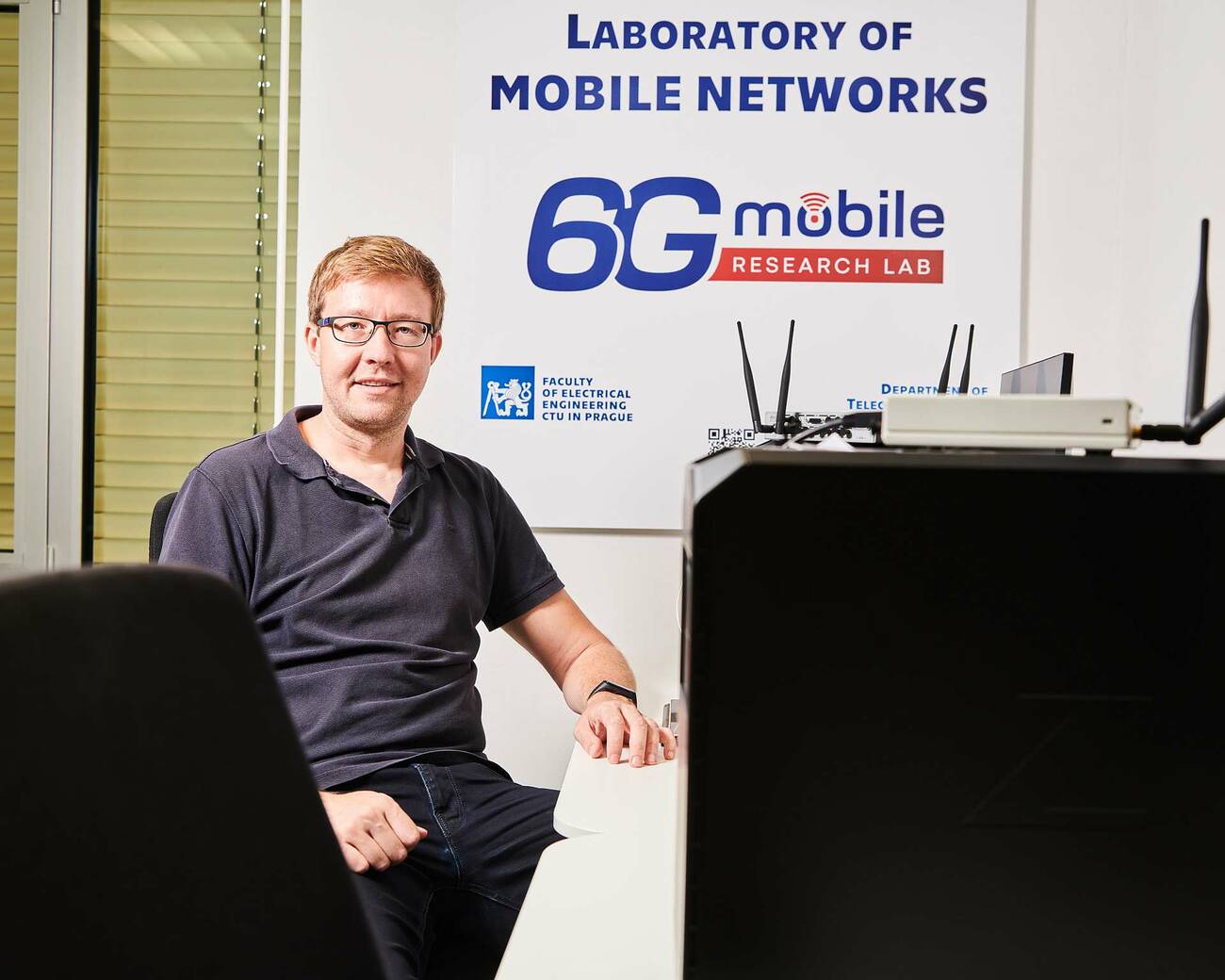A key point of the project, led by the Faculty of Electrical Engineering of CTU, is the participation of two major institutions in terms of 6G research (EURECOM and the University of Oulu) and the fact that testing of the proposed solution will be carried out directly on the premises of Robert Bosch spol. s. r. o. The focus of the research is directly related to the joint exploration of the possibilities of 5G networks in industry within the Wireless data transmission project implemented by the Faculty of Electrical Engineering CTU and Bosch. This project demonstrates the capabilities and limits of fifth generation networks in the specific industrial environment of Bosch.
A 6G network only needs to transmit a fraction of the information to meet the target, the rest is guessed by
Semantics, the main theme of the interdisciplinary MUSE-COM project of European research institutes, is the meaning and purpose of the information to be transmitted. Combining semantic communication with the use of knowledge of the meaning of the transmitted information and the purpose of the communication also for efficient information processing will use machine learning to "guess" some parts of the information, thus reducing the transmission burden and the cost of data processing.
"In this project, we are exploring the possibilities of integrating semantic communication and data processing at the edge of a mobile network, called Edge Computing, using machine learning to infer the meaning of data from different types of sensors in order to efficiently transmit and process information. This will allow only selected relevant data to be transmitted and, if necessary, a portion of the untransmitted data to be reconstructed at the receiver side using machine learning. Such a solution will lead to a reduction in the volume of transmitted data and to a reduction in the computational complexity of its processing," says Professor Zdeněk Bečvář from the Department of Telecommunication Engineering at the Faculty of Electrical Engineering of CTU, who manages the 6G Networks Laboratory.
6G networks have the potential to push the current possibilities further precisely by effectively using the knowledge of the meaning of the transmitted data and the purpose of communication. "The idea is not to transmit and process all data, but only the most necessary to meet the desired goal, which saves time, energy, and money," says Professor Zdeněk Bečvář
Factories of the future where machines communicate with each other
"The innovations promised by 6G networks range from controlling movements on production lines using wireless technologies to highly efficient, accident-free factory production with minimal risk of human error," explains project coordinator Zdeněk Bečvář.
Edge Computing is relevant, for example, in the design of intelligent production systems in factories, where the device has to deal with data from various sensors in real time. The key is to "teach artificial intelligence and the 6G mobile network to make do with a fraction of the information" and to "figure out" the rest. This is the research goal of a consortium of European research giants led by the Faculty of Electrical Engineering of CTU and Robert Bosch Ltd. in the MUSE-COM project.
Bosch is driving the development of 6G networks forward
Cooperation between the Faculty of Electrical Engineering of the CTU and Bosch, a leading pioneer in the development of sixth-generation mobile networks, is playing a key role in interdisciplinary research. Bosch's České Budějovice site is featured as an artificial intelligence expert in the consortium of European research leaders, which will be involved in the design of machine learning-based systems. It is also interesting that Bosch will provide testing facilities and the proposed experiments will be implemented in its environment.
In fact, Dr. Andreas Müller, Head of Communications at the Corporate Research Department of Robert Bosch GmbH in Stuttgart, confirmed his interest in advancing 6G network research by stating at a press conference on February 27, 2023: "6G will be much more than just an infrastructure for connectivity; it will significantly increase the efficiency of self-driving vehicles, smart cities and connected industries. That's why 6G is a strategically important area of technology." Bosch is currently contributing its expertise and experience and is also taking a leading role in early discussions and activities on future mobile communication standards within various industry alliances.
Bosch's final statement at this year's press conference was, "The next generation of mobile communications will integrate new radar-like functions. With 6G, it will be possible to detect the location of objects in the network coverage area without these objects having to be equipped with a radio module. 6G will enable extremely high transmission speeds of up to one terabit per second with very low latency on the order of 100 microseconds - four times faster than a lightning strike. This will allow, for example, real production processes to be monitored and simulated in a virtual world without time and space constraints." Bosch experts predict that the first 6G standard will be completed by the end of the decade.


